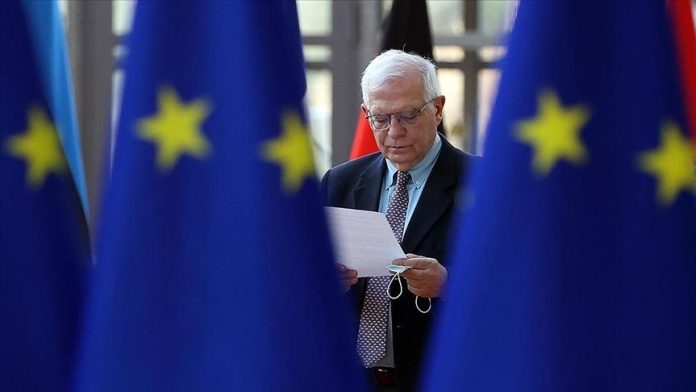The European Union is gearing up for tussle over what the 12th sanctions package against Moscow should include – Bloomberg.
The new measures, which could be unveiled as early as next month, are likely to include a G7 plans to ban the purchase of Russian diamonds. A long-awaited proposal to use profits from frozen central bank assets to help Kyiv is also likely to be considered, according to people familiar with discussions.
A group of member states, including Poland and the Baltic States, have called for additional sanctions on liquefied natural gas (LNG) and IT services, as well as restrictions on Russia’s nuclear sector.
However, their proposal has been repeatedly rejected by other EU member states. Some nations argue that the focus should be on ensuring compliance with existing restrictions, as there is almost nothing to impose new sanctions on.
Earlier attempts to impose sanctions on Russian gemstones in Europe have met resistance from leading importing countries such as Belgium. The country argues that imposing a restriction without a global agreement would result in a simple shift of importers.
A new package could be agreed in the first half of October or announced during the EU-US summit scheduled for next month. The exact date of the event has not yet been set.
Any new package is also likely to focus on limiting Russia’s ability to circumvent EU sanctions via third countries such as the United Arab Emirates and Turkey.
The Commission also plans to discuss the introduction of a windfall income tax. The frozen assets of the Russian central bank generate profits in clearing houses, despite opposition from the European Central Bank.
Commission President Ursula von der Leyen is likely to push for a windfall tax following an earlier pledge. However, Member states have expressed concerns about legal and financial stability after such a move. Some European leaders are calling for some of the frozen assets (200 billion euros) to be channelled into Ukraine’s reconstruction.
